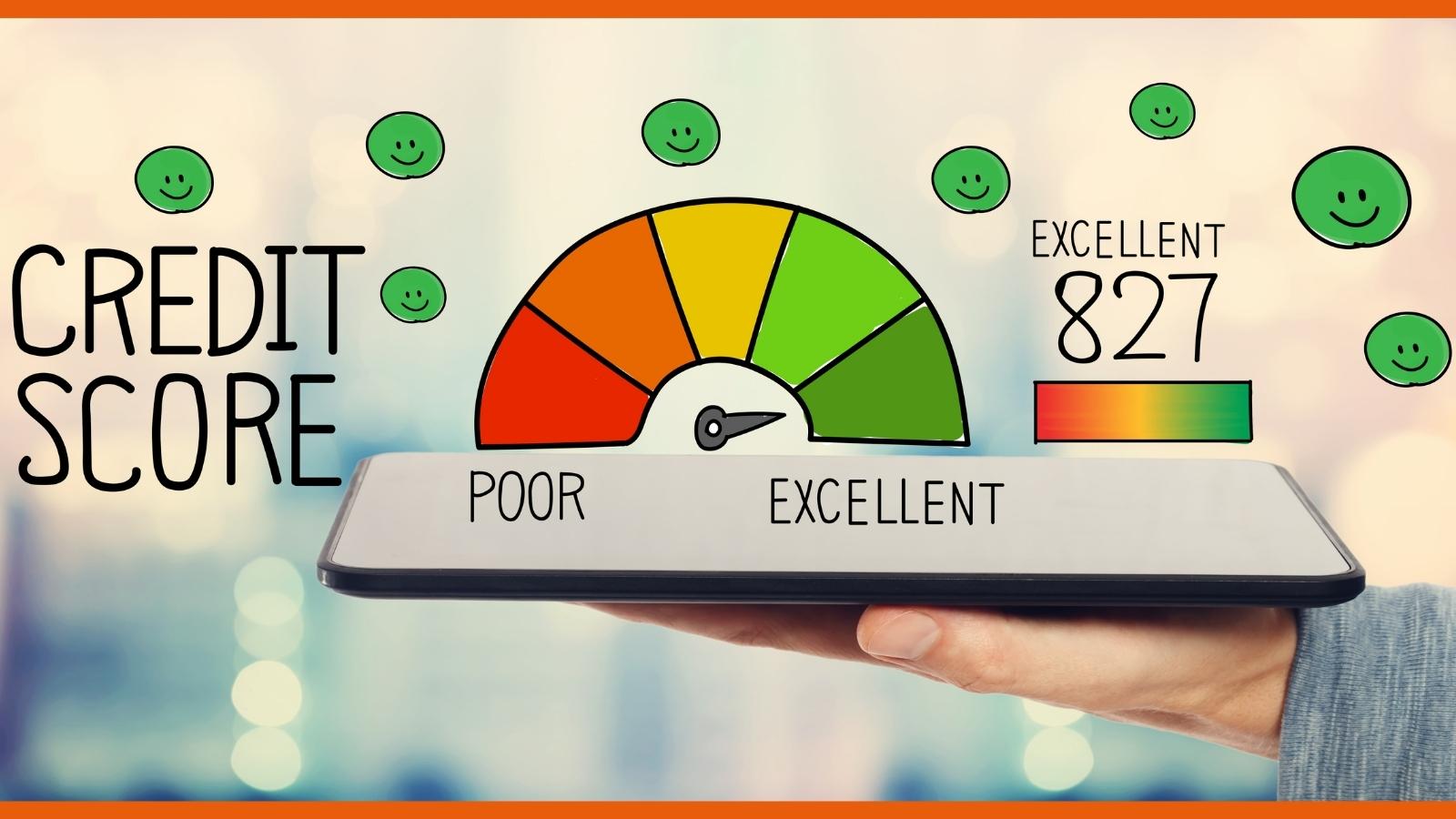A credit score is often the best measure of your financial health. It can save you money, help you qualify for an apartment, and even help you land that job you’ve been trying to get. Many people don’t understand exactly what a credit score is or how to check your credit score. .
This article will take you through the basics by explaining what a credit score is, why it’s important, and what you can do about it.

It also is a major factor when needing credit for your small business.
Table of Contents
What Is A Score?
A credit score is a number between 300 and 850 that is designed to reflect creditworthiness. Simply put, it is meant to measure the likelihood that you will pay your bills on time.
The number is based on several factors believed to accurately measure the risk that lenders face if they loan you money. A higher score correlates to lower risk, and rankings are as follows:
- 800 to 850 is excellent
- 740 to 799 is very good
- 670 to 739 is good
- 580 to 669 is fair
- Under 580 is poor
Why Should You Check Your Score?
Your credit score is a vital piece of information that can impact your ability to get approved for loans and mortgages, as well as the terms you are offered. It’s important to check your score by applying for any new credit products.

Another reason to check your score is to make sure that there are no errors in your report. If you catch an error early, you should be able to resolve the problem quickly.
Why Is Your Score Important?
Because your score is considered a reflection of the risk involved in lending money to you, a higher score can help you gain approval for a loan or a line of credit. If you are approved, an excellent score can also save you money by helping you secure a better interest rate.
Furthermore, because your credit score is considered to be an accurate reflection of how responsible and trustworthy you are, many companies look at your credit score as part of the hiring process.
Landlords can also use your credit score to determine whether they should rent to you, and if you are trying to get a mortgage, the lending bank will want to see it too. The same applies to you as a small business.
As you begin to build your business you may need to borrow money.
Finally, a high score can help you avoid down payments when you sign up for a new utility service or join a new cellphone plan. All in all, having a good score can make navigating through life easier!
It will help you to avoid a financial crisis.
How Can You Increase Your Credit Score?
If you discover that your rating is not as high as you’d like, there are steps you can take to boost your credit score. While different companies use slightly different scoring models for the calculation, the factors most often considered are bill payment history, credit history, available credit level, overall debt level, and debt-to-credit ratio.
Many believe that your payment history is the most important factor. Therefore, you should always make sure you pay your bills by the due date.
It’s wise to use autopay from your bank or alerts from your computer to make sure you aren’t late with a payment.
Credit History and Your Credit Score
Credit history is also important. For this reason, it’s a good idea to get your first credit card while you are still a student. Companies like to see that you have a long track record of responsibly handling credit and debt.
Similarly, if you have an old card that you rarely use, hang on to it because the history associated with that card can help your score.
Next, make sure that you pay off as much of your debt as possible because the lower your debt balance is, the higher your score will be. Similarly, it’s best to have a large line of credit.
You can always ask your credit card company for an increase, even if you have no intention of using it. When your credit increases while your debt stays constant. Better yet, when decreases, your credit score will go up.
How To Check Your Credit Score
Checking your credit score is simpler than you might think. You can start by accessing free credit reports from websites like AnnualCreditReport.com, which lets you check your score once a year from each of the three major bureaus: Experian, Equifax, and TransUnion.
Many banks and credit card companies now offer free monthly credit score updates through their online platforms or apps, so take advantage of that.
For a more detailed look, you might consider signing up for credit monitoring services, but read the terms as some might try to charge you. Keep an eye out for errors in your report, as they can affect your score.
Do this regularly and you’ll stay on top of your financial health.
Final Words: Check Your Credit Score
Start using this knowledge to check and up your credit score.
Take advantage of free credit checks. Do work on establishing a long history of paying your bills on time. Focus on maintaining a healthy debt-to-credit ratio.
You might not reach your goal overnight, but you will be well on your way! Has a bad credit score hurt your small business or blog? I’d love to know more in the comments below,
- Best Blog Post: How You Can Make A Mind-Blowing Blog Post - October 21, 2024
- How the Instagram Character Limit Affects Your Growth - October 19, 2024
- What Is The Social Proof Principle: Why Do You Need It? - October 19, 2024



